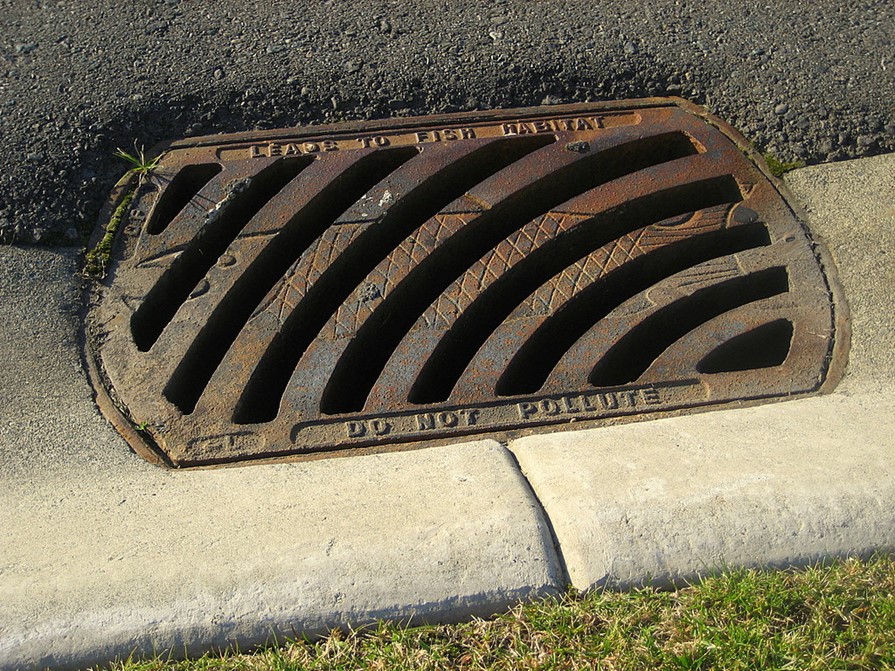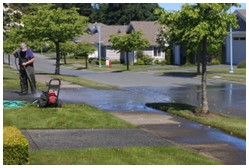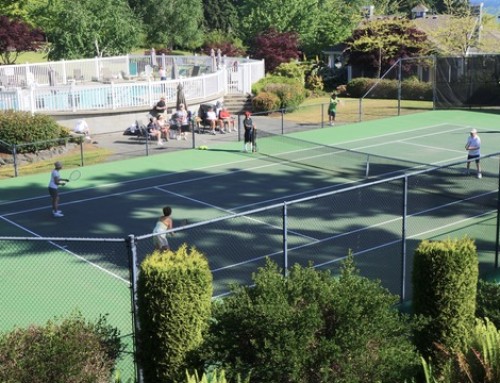Yes, it’s that time of year when spring cleaning the outdoor amenities of our strata lots begins to rev-up. Many of these activities include the cleaning of patio decks, sidewalks, driveways and the like. Accordingly, it is often the case that much of the wastewater and debris thereby removed flows out to the streets of Craig Bay. If left unchecked, that debris will eventually wash down to the cover grate of a stormwater catch-basin, where, almost magically, the material becomes “out-of-sight and out-of-mind”!

However, it is important for Craig Bay residents to know or to remember that anything and everything carried into these catch-basins makes its way to our stormwater detention ponds. The avoidance of having any silt, sand, debris, grass-cuttings, etc. entering these stormwater inlets is not only important to ensure at this time of year but at anytime of the year. Given the substantial capital investment the community has expended, through recent years, it behooves each of us to minimize the amount of grit, silt, trash and the like from ending-up in our ponds.
This not only applies to Craig Bay residents but to contracted cleaners, where the ultimate responsibility for proper prevention of deposition of the unwanted material in the storm water drains rests with the contracting resident. The latter needs to advise contracted help of the necessity of restricting the flow of water-born debris or even water-soluble materials into these drain inlets. A simple push-broom or large rag placed in the gutter upstream of the storm drain will help holdback and capture most of the washed-off debris, which in turn can be cleaned-up later and disposed of by other means. Pressure-washing contractors have been observed allowing washed-off debris to be left on the streets or allowed to flow with their wastewater to the drains.
It is incumbent on us all to do whatever we can to minimize, as much as practical, the disposal of unwanted material into our road and backyard drains. This will help reduce pond maintenance demands from added nutrient loading and extend the life of our recent capital investments.
Your cooperation is greatly appreciated!
CLC Pond Committee





